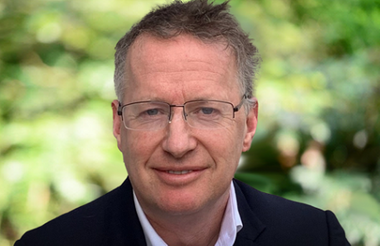When I started as chair of the Charity Commission around a year ago, amongst other things, I committed to listening to and, where appropriate, being an enthusiast for the charitable sector – including being prepared to stand up for unfairly criticised charities.
Over the past 12 months, I’ve delivered on that promise, meeting with and visiting charities across England and Wales, hearing about the impact they make, the challenges they face, and what they expect from the Commission. I’ve learnt a lot – including, thanks to a memorable visit to a wonderful arts charity in Wales – basic juggling skills.
Accusations lack evidence
Earlier this month, however, I travelled a little further afield, to Romania. I wanted to see for myself the difference being made by charities supporting those displaced by the war in Ukraine, funded by the remarkable generosity of the British public, which so far has donated £400m to the Disasters Emergency Committee Ukraine Humanitarian Appeal. And I wanted to bear witness to it, as I believe there are some in the political sphere, and the media, who are sceptical of international development charities, and the impact they have.
I am grateful to the DEC’s expert staff, here and in Romania, who put me in touch with several impactful projects supported by DEC members. One of the Romanian charities I visited, Carusel, supported by Oxfam with DEC funds, hosts families (and pets) in modest converted shipping containers. These living arrangements are sparse, but they are designed to help residents retain a sense of control over their day-to-day lives, and to protect their dignity. The charity also supports Ukrainian refugees to remain connected, celebrating occasions and public holidays with BBQs and activities. Families with young children are supported with crafts and language classes.
This is just one example of the vital, lifesaving and life-affirming work overseen by British charities, working with local experts on the ground, with funding donated by us here in the UK. We should be proud of these charities – Oxfam, Save the Children, CAFOD, Plan International and many more. And yet some commentators do not support or champion these charities as you might expect, but instead criticise them in numerous, often tenuous ways, including that they are “too woke”.
It is hard to avoid the feeling that such criticism is not always prompted by evidence of material inefficiencies, but sometimes instead by an unhappiness that international aid charities may not align culturally or politically with their critics' world view. On the other hand, the UK public continues to demonstrate support for international aid charities, and their work to translate universal human values of compassion, kindness and love into practical action. These organisations are thus fantastic ambassadors for the British people, nurturing goodwill, friendship, and mutual respect.
Helping the sector to rebuild trust
The safeguarding scandal five years ago of course undermined trust. But I am confident that the Commission’s investigation into Oxfam, and the follow-up work we required, helped the charity, and the wider aid sector, to clean up its act.
While in Romania, I learnt about the DEC funded regional safeguarding hub – a resource for organisations and individuals responding to the war in Ukraine, providing practical and accessible safeguarding support aimed at helping to avoid harm to refugees and displaced people. This is a great model, an example of collaboration within the aid sector, and living evidence that charities have learned the lessons of the past, and continue to refine and evolve their support for vulnerable people, and their duties towards staff and volunteers.
The scale of the havoc wrought by Putin’s aggressive and illegal war in Ukraine is hard to grasp: over 8 million people have fled the country, another 8 million are displaced within Ukraine. And so sometimes it is the single story that brings home the need for, and impact of, the work of charities.
British charities bring huge value
One of the people I encountered in Bucharest was a teacher – I’ll call her Anna. I met her as she was supervising younger children in a facility supported by CAFOD – they were playing Easter games, and decorating Easter biscuits. Anna would have been teaching a class of her own in Ukraine, but, like her young wards, was last year forced to escape the horrors of war. She left behind her 17-year-old son, who has since joined the fight.
No charitable support can undo the pain of separation from her son and her homeland. But projects funded by UK charities have provided Anna not just with safety and shelter, but with purpose and a mission to help her young compatriots in Romania have as normal an experience as possible, under the shadow of war, helping her feel that, like her son, she is part of an international effort to counter evil with good.
I would encourage politicians who are sceptical of the impact of aid charities to travel to Romania, Poland, the Horn of Africa, or anywhere in the world where these organisations are active, and witness the difference they make to thousands of people like Anna, to people like you and me. I think their eyes would be opened to the huge value these British charities bring to those they help, and in turn to us as a nation.











